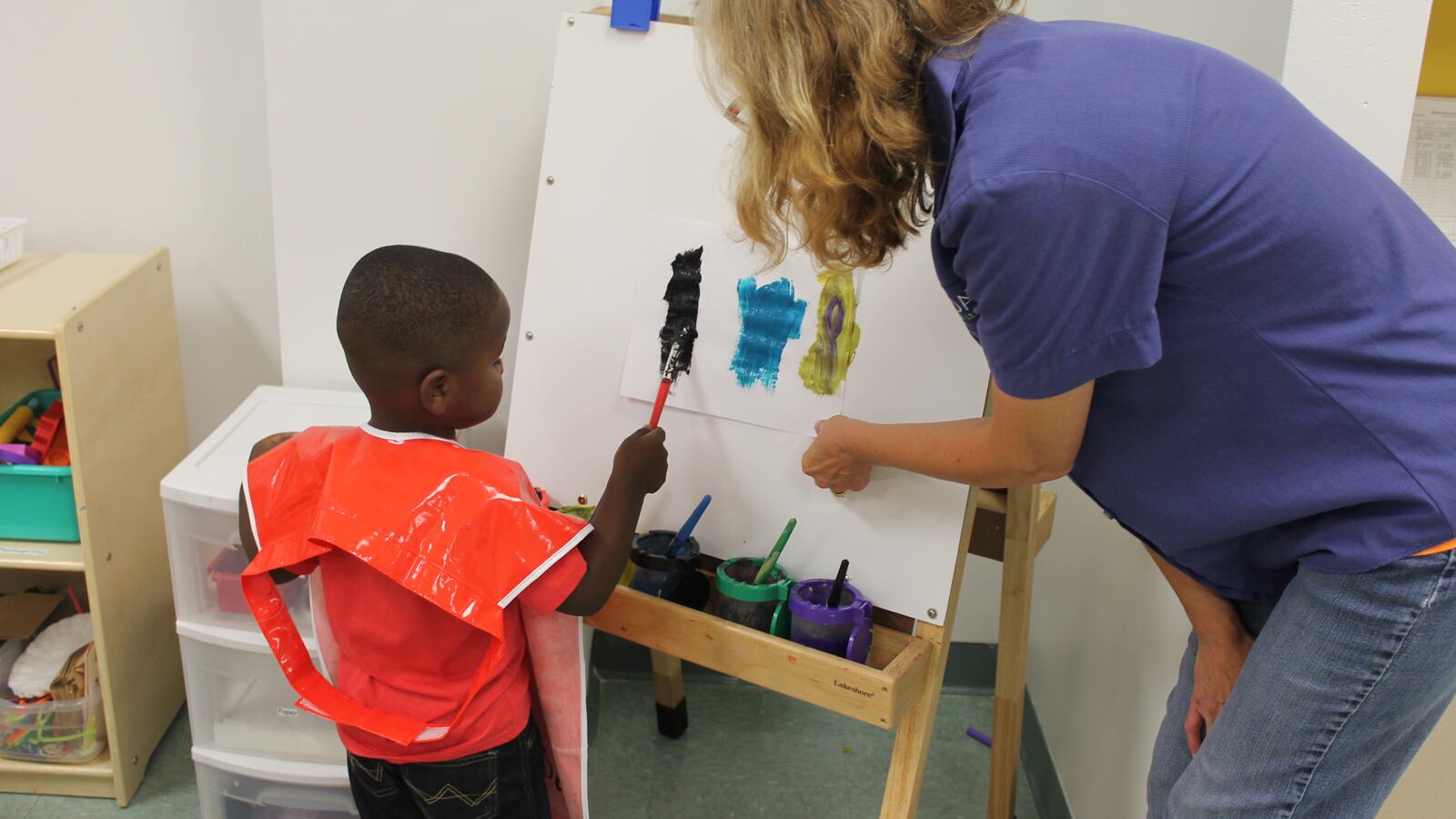The Indiana State Board of Education today joined education advocates, lawmakers and the state’s next top education official in supporting an expansion of free preschool programs for low-income kids.
“Preschool, as all research has shown, gives our schoolchildren a leg up in their education,” said board member Gordon Hendry. “If we’re going to improve, if we’re going to have a significant impact on education in this state … we should expand the early education program.”
The state first launched a pilot program in 2015 that awards scholarships to Indiana’s neediest 4-year-olds to help them attend high-quality public and private preschools. But the popular program, supplemented by a city-supported version, only serves a fraction of kids who qualify. Fewer than half of the 4,200 poor families in Marion County who applied this year are expected to win preschool scholarships.
Board members today approved a resolution calling on the state legislature to expand the program to more poor kids, but they didn’t echo calls from some advocates that the program be expanded for all children. Some board members have said they’d like to see the state go further.
“The same people who question (preschool’s) importance are the ones paying for it for their own children,” said board member Vince Bertram, who was not present for the resolution approval today but supported the resolution in a meeting last month. “We know the results, we know years of research on early childhood education. I think this is a funding issue. We need to stop saying we are piloting this.”
A push to expand preschool to every four-year-old in the state took a hit last week when state Superintendent Glenda Ritz, who had advocated for an ambitious universal free preschool program, lost her re-election bid to Republican Jennifer McCormick, a superintendent from Yorktown.
But McCormick also wants to see preschool expand — as long as priority goes to poor kids who need it most.
McCormick said at a recent debate in Fort Wayne that eventually she wants to have a universal access program by 2020, though her plan would grow the program more slowly than Ritz’s would.
The idea of expanding the pilot program has been gaining steam with major support from civic leaders, who presented their version of a preschool pilot expansion plan to lawmakers this past summer. Lawmakers eventually expressed support for the proposal so long as local philanthropic groups continue to contribute.
The current pilot program awards preschool scholarships to needy families using a lottery. The program is funded by the state and is supplemented in Indianapolis by a separate program that uses money from the city, businesses and private foundations. Both programs are in high demand.
The board today also passed a resolution supporting efforts to reduce the costs of textbooks and class materials for families. Ritz has already called for a $1,000 textbook tax credit, but McCormick has said she’s not sure whether any families should be getting a textbook tax break, as it could further reduce state revenue.
“This is something that we feel the legislature should give serious consideration to,” Hendry said. “(They should) explore programs that would limit or eliminate out-of-pocket expenses for all parents and families.”
Indiana is one of eight states in the United States that charges families for textbooks and materials.

